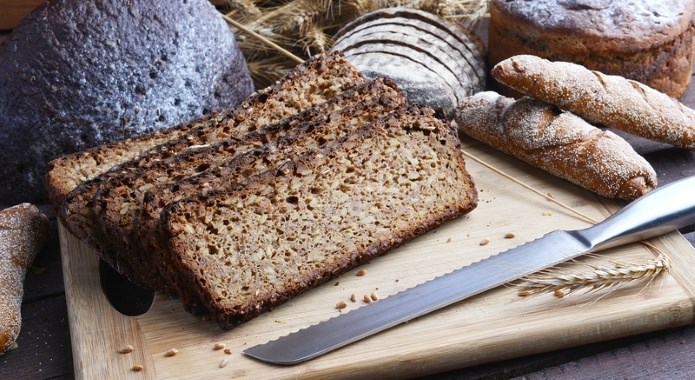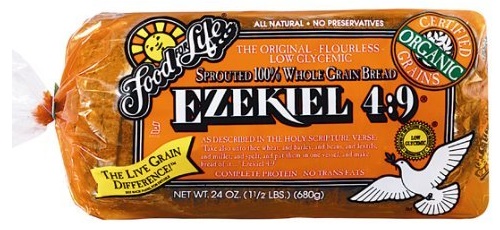
Ezekiel Bread, or Biblical Bread, as some people call it is made from sprouted grains. What that really means is that the grains or seeds are used during the cycle of life between the time the grains or seeds starts to sprout and when they become plants.
Ezekiel lived on this bread in biblical times, and now people who suffer from Celiac disease or learn they are gluten intolerant have found that this type of bread is good for them too.
Nutritional Value of Ezekiel Bread

During the early life cycle of the sprout, the starch that would typically be found in grain is actively supporting its life and growth. During this phase, levels of other nutrients such as protein, vitamins, and minerals are slightly elevated and easier to be digested.
Just one slice of a brand called “Food for Life Ezekiel 4:9” includes following nutrients:
- Calories (80)
- Fat (0.5g)
- Sodium (75mg)
- Potassium (80mg)
- Carbohydrates (15g – including 3g of fiber)
- Protein (4g)
It even includes small amounts of Thiamine, Phosphorus, Riboflavin, Magnesium, Niacin, Zinc, Iron, and Vitamin B6.
Pay attention: This food is especially suitable for vegetarians and vegans who normally may not get appropriate levels of certain minerals such as zinc and iron in their diets. However, research is still inconclusive about the health effects of long-term consumption of this type of bread.
Long-Term Benefits of This Food
This food made from sprouted grains (not entirely gluten-free) is easier to digest for those who suffer from Celiac disease or gluten intolerance than any regular bread. It comes with several benefits:
- Those who are gluten intolerant will have better energy, and they will not feel so tired and ill.
- People who are eating this type of bread report less bloating and discomfort from gas.
- Better

